It is normal to experience occasional weakness, swelling, and even pain in our hands and fingers. After all, when was the last time you went an entire day without using your hands? We use them for practically everything—they are how we interact with the world. If lucky, these temporary symptoms can be attributed to an acute injury to the muscles, nerves, or tendons, an illness, or even overuse from repetitive actions such as sewing, typing for too long, or gripping something too tightly. The problem arises when stubborn hand pain comes and goes, lingers for months, and limits our ability to function and complete everyday tasks we tend to take for granted. If this sounds all too familiar, you likely have one of many common hand disorders.
Hand disorders can result in pain, loss of sensation, loss of movement, impaired functions, loss of productivity, and reduced quality of life. Our Fort Worth hand doctors strive to provide the compassion, expertise, and knowledge to address your hand and upper extremity needs. The first step is to determine a proper diagnosis.
The list of common hand disorders can get rather long. But here are a few of the most common ones we see.
Hand Disorders Are More Common Than You Might Think
1. Carpal Tunnel Syndrome
Carpal tunnel syndrome is one of the most common hand disorders, affecting roughly 4-10 million people in the United States. It is a painful condition in which the median nerve, which runs the length of your arm into the palm of your hand, becomes pinched at the wrist. People with carpal tunnel syndrome typically only experience symptoms in the thumb and index, middle, and ring fingers on one hand. But it can affect both hands at the same time in severe cases.
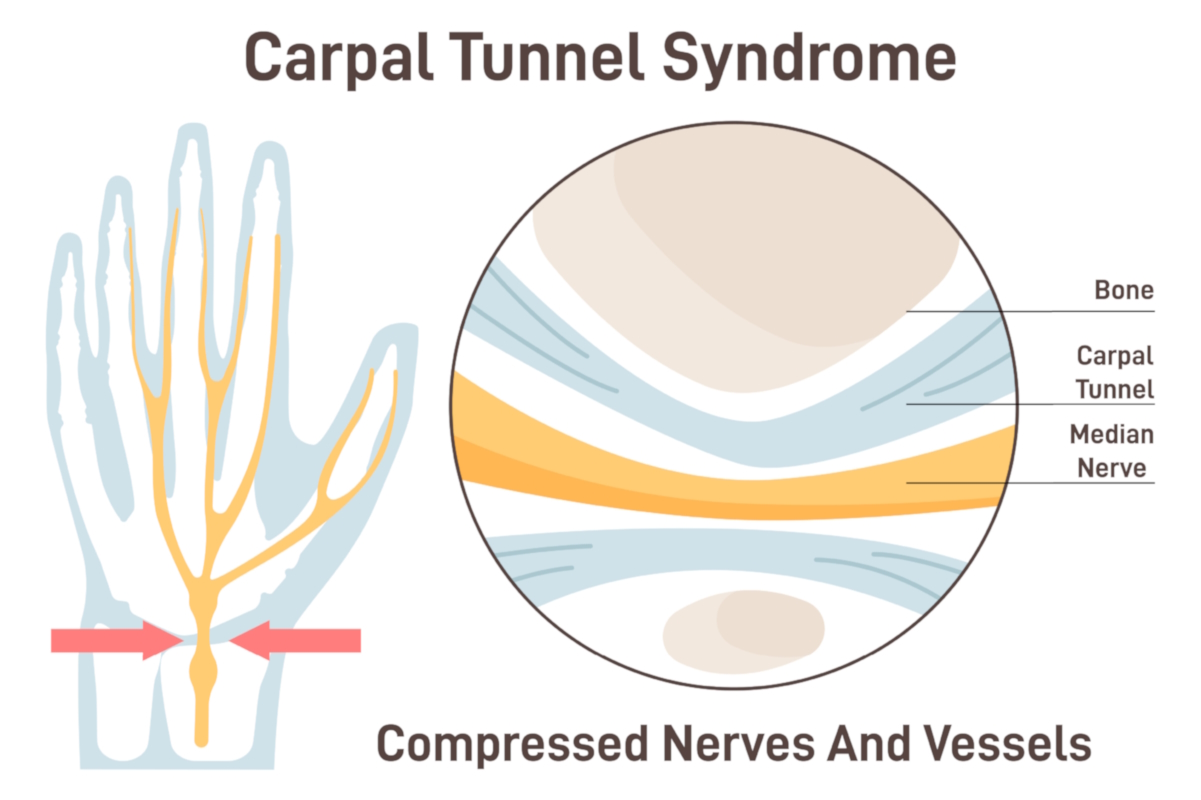
At first, carpal tunnel symptoms are mild and typically come and go. Eventually, it can become difficult to perform easy tasks that require using your hands. For example, these tasks include buttoning a shirt, tying shoelaces, bending at the wrist, or gripping a steering wheel. Patients with carpal tunnel may also drop things more easily because they no longer have grip strength. A person with carpal tunnel syndrome will experience a variety of symptoms, including but not limited to the following:
- Numbness and tingling
- Pins and needles sensations
- Painful burning or shooting pains along the hand, wrist, or forearm
- Muscle cramps or hand weakness
- Morning stiffness in fingers and hands
- Hot and cold sensations
- Difficulty grasping or using one’s hand

You may be wondering about treatment for common hand disorders like carpal tunnel syndrome. The first step is to take a break from repetitive actions that cause pain, such as knitting, computer use, or even carpentry work. Many people find considerable relief simply by taking this step. If rest does not work, treatment options can include medications, ice packs and hand elevation, wrist splinting, hand and wrist exercises, chiropractic care, and limiting undue pressure on the wrist by practicing good posture even when you are not using your hands. In chronic cases, your orthopedic surgeon can use surgery to cut the ligaments in your hand to relieve pressure on the median nerve.
2. Arthritis
Another common hand disorder that affects millions is arthritis. In a general sense, arthritis is defined as chronic inflammation of one or more joints (where two bones meet) that causes pain and stiffness. It typically worsens with age—especially when left untreated. Arthritis symptoms can vary widely in terms of severity and location and can also come and go. There can also be a wide range of reasons why you are suffering from it, including normal wear and tear, a specific injury, infections, obesity, family history, or immune system issues.
Arthritis is so common that it accounts for more than $156 billion annually in lost wages and medical expenses. There are also nearly one million hospitalizations each year due to arthritis. Depending on your unique situation, symptoms can range from pain and stiffness to any of the following:
- Swelling and tenderness in and around the affected joint
- Muscle weakness
- Whole body fatigue
- Redness or hotness in the joint
- Difficulty walking or gripping
- Grating sounds (joints rubbing together)
- Bone spurs forming around the joint
- Deformities
- Lack of joint coordination
There are over 100 types of arthritis and related conditions that can damage joints, and their symptoms can vary widely. While there is currently no cure for these hand disorders, there are several treatments to manage your pain and improve your ability to perform routine activities. This includes non-steroidal anti-inflammatory drugs, stretching, physical therapy, chiropractic, and supportive braces.

All of these can improve flexibility, restore muscle strength, and improve physical function. Cortisone injections are also very popular, and surgery to repair damaged joints can also provide relief.
3. Trigger Finger
This hand disorder, also known as stenosing tenosynovitis or trigger thumb, is when one of your fingers is literally stuck in a bent position. If you can forcefully straighten your finger out of this locked position, there is typically a snap or popping sound—and it can be incredibly painful. This is because the pulleys or protective sheaths in your finger have become too thick or inflamed, and your tendons can no longer glide seamlessly through them.
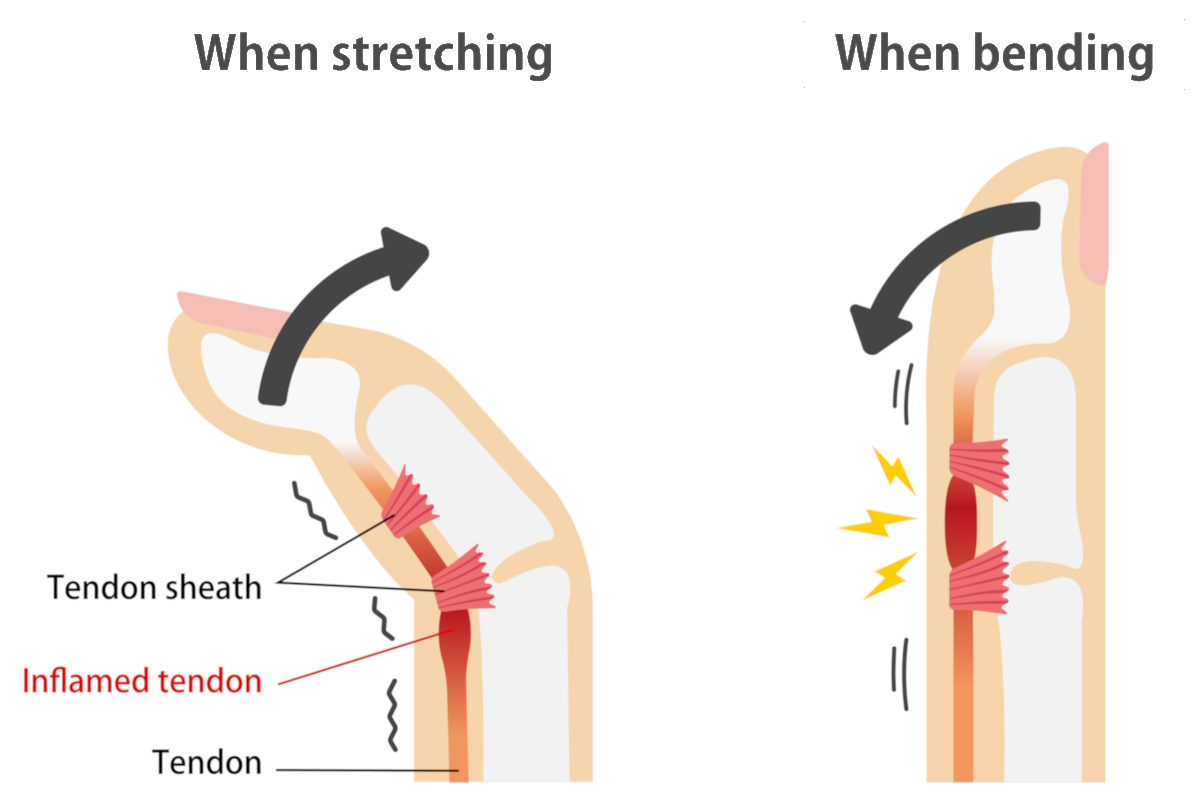
Trigger finger affects any finger, including the thumb. More than one finger can be affected at the same time on one or both hands. Your hand doctor will accurately diagnose trigger finger, though common symptoms include:
- Limited finger movement
- Stiffness
- A finger that is stuck or locked in a bent position
- Difficulty straightening the affected finger
- Pain, popping, or a “catching” sensation
- Tenderness or a bump at the base of one finger
You may be wondering about treatment options for hand disorders such as trigger finger. Severe cases may require surgery. Many times, treatment is conservative and includes medication, rest, splinting, and stretching.
4. Dupuytren’s Disease
With this hand disorder, a patient may notice lumps of tissue or nodules forming on the fascia tissue on the palm side of the hand. In many cases, these lumps may never progress to anything more. But that is not always the case. They can begin to thicken and tighten into thick, painless cords that act as a pulley system with the fingers. As a result, one or more fingers tethered to these thick cords begin to get pulled backward (contracture) toward the palm. Any finger can be affected, though the two fingers farthest from the thumb are the most common.
While rare, Dupuytren’s Disease impacts about 15 million Americans—primarily men—age 35 and older. Currently, there is no cure for the condition; it typically progresses very slowly and may not become troublesome for many years, if at all. Those whose condition does progress to the point where one or more fingers remain permanently bent or restricted can still reclaim full use of their hand through non-surgical and surgical treatments.
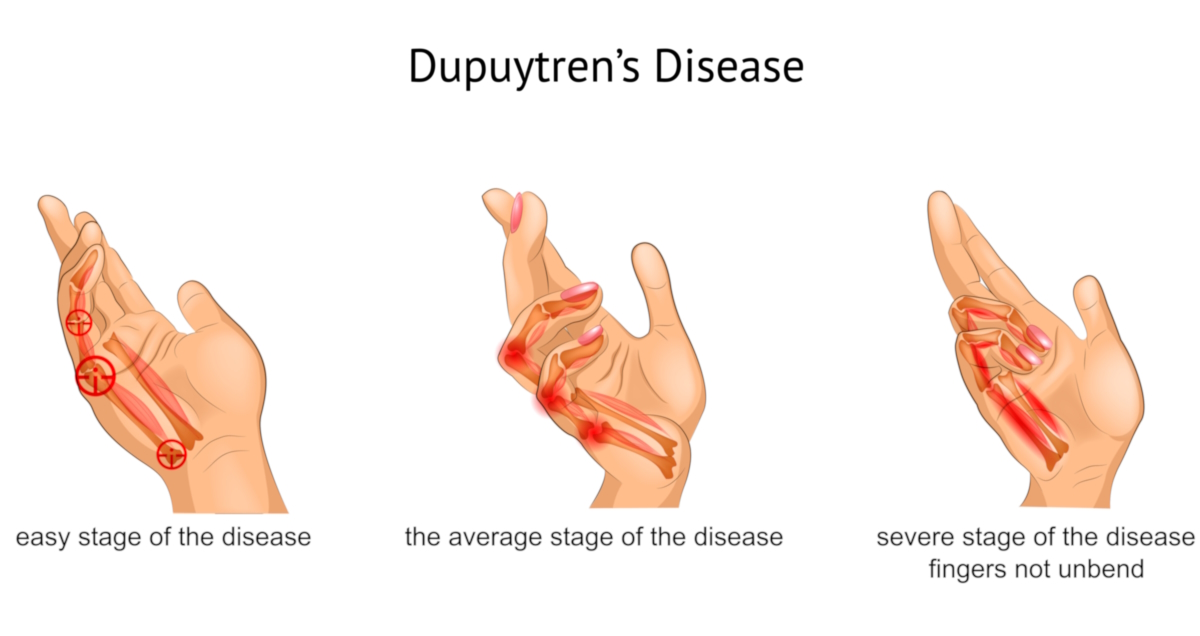
Similar to other hand disorders, treatment can include physical therapy, bracing, steroid injections, ultrasonic heat treatments to increase fascia flexibility, and contracture surgery or subtotal palmar fasciectomy.
5. Ganglion Cysts
Ganglion cysts, or bible cysts, are very common fluid-filled growths of the wrist, hand, and finger that quickly appear, disappear, and change sizes. They arise out of a joint, like a balloon on a stalk. Often, they are painless and more of a cosmetic annoyance. That said, an untreated ganglion cyst of the wrist could eventually limit the ability to move your wrist, making bending or strengthening your wrist difficult and/or painful. It can also cause patients to feel irritation, pain or tingling if the cyst is pressing against nerves, ligaments, or arteries.
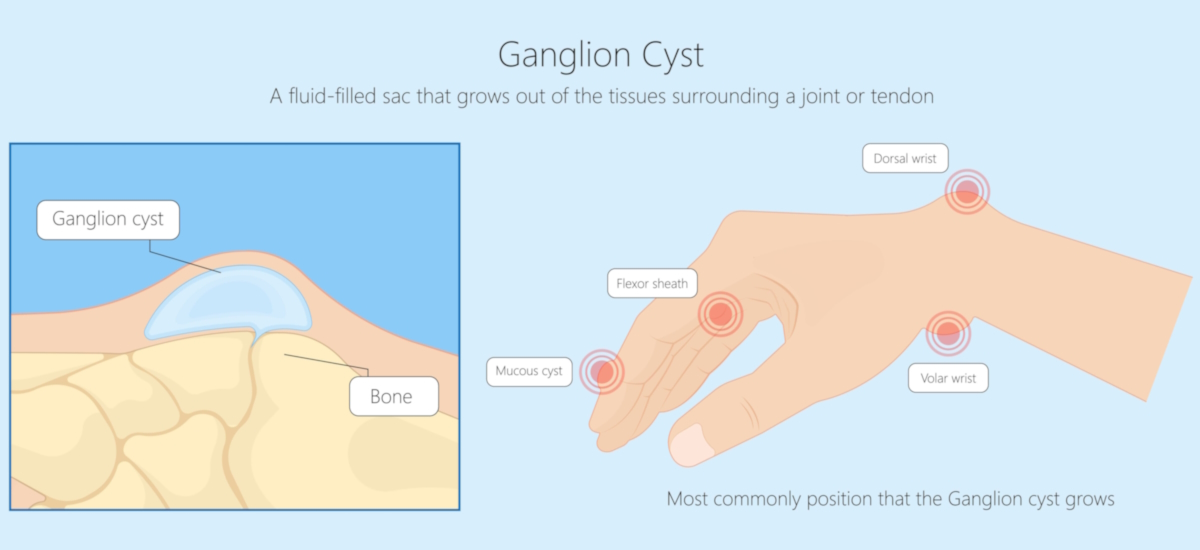
A ganglion cyst grows out of the tissue surrounding a joint or tendon, accounting for 60-70% of soft tissue masses in the hand and wrist. They can be as small as a pea or as large as a golf ball, and they can also be soft or firm. With that said, no one knows the definitive cause for ganglion cysts of the wrist. They are random in the sense that they can come and go, and most tend to go away without any medical intervention.
Common symptoms of this hand disorder include the following:
- A soft lump that changes size but doesn’t move
- Can disappear and return later
- Pain and swelling
- Tingling
- Muscle weakness
- Difficulty in bending the wrist
If the ganglion cyst is making certain movements or tasks difficult, you are in pain, or you are self-conscious about it, there are a few treatment options, including draining the cyst, surgery, bracing and splinting.
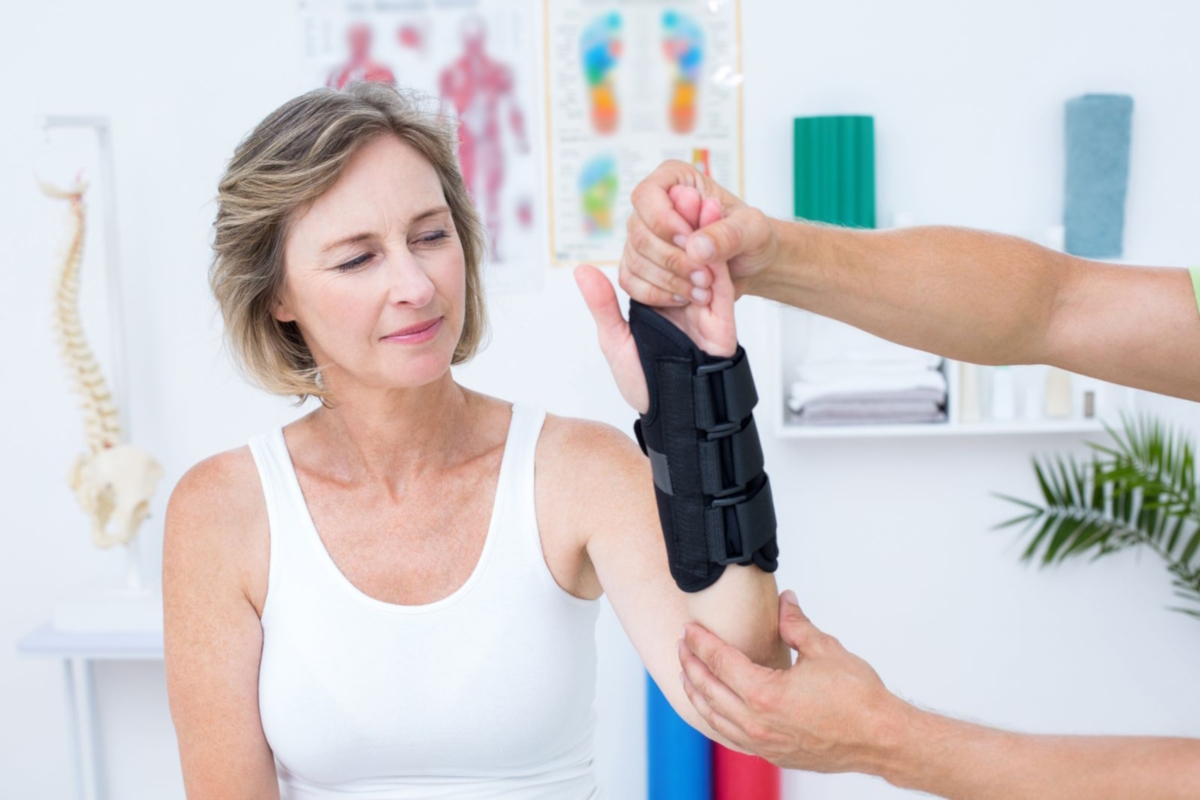
Worried About How to Treat Hand Disorders? Visit Our Fort Worth Orthopedic Surgeons
The hand is a complicated anatomical system consisting of muscles, tendons, ligaments, and nerves secured to 27 bones and 15 joints. It provides you with incredible functions, and any hand disorder or injury can be life changing. Our expert care provides patients with the potential for maximum recovery. The bottom line is that these and so many other hand disorders do not have to ruin your life forever.
From fingertips to elbows, Fort Worth Hand Center offers expert diagnoses of injuries, chronic conditions, and degenerative diseases. If surgery is your best treatment, our orthopedic hand doctors operate in state-of-the-art, accredited surgery centers.
To schedule an appointment, call 817-877-3277 or complete the form below. We care about our patients and strive to provide the best care.
"*" indicates required fields
Prior to starting any new treatment or if you have questions regarding a medical condition, always seek the advice of your doctor or other qualified health provider. This information is not a substitute for professional medical advice.
Fort Worth Hand Center serves the DFW area, including North Richland Hills, Pantego, Pelican Bay, Richland Hills, River Oaks, Saginaw, Sansom Park, Southlake, Trophy Club, Watauga, Westlake, Westover Hills, Westworth Village, White Settlement, Arlington, Azle, Bedford, Benbrook, Blue Mound, Burleson, Colleyville, Crowley, Dallas, Dalworthington Gardens, Edgecliff Village, Euless, Everman, Flower Mound, Forest Hill, Fort Worth, Grand Prairie, Grapevine, Haltom City, Haslet, Hurst, Keller, Kennedale, Lakeside, Lake Worth, Mansfield, Newark, and all of North Texas.



